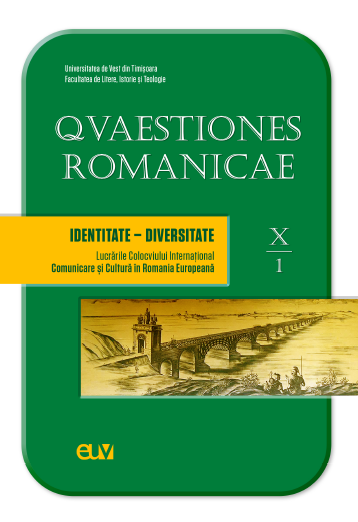Du druide gaulois au consul romain : convergence et association d’origines variées dans la construction de l’identité nationale française à la Renaissance
Abstract: (From the Gallic Druid to the Roman Consul: Convergence and Association of Various Origins in the Construction of French National Identity during the Renaissance) The 4th century was witness of the apparition in various ways of the presence of Gallics in the western Roman Empire, in particular through some usurpers emperors from Gallic origin. Nevertheless, it was not the only way of the recognition of a Celtic characteristic: Gallo-Roman poet Ausonius, in the 4th century AD, appears as the example of an intellectual from Gallic upper classes who reached to a whole integration into the Roman conquering world, since he taught in Bordeaux Latin language in which he was thought of as a virtuoso and because he reached Consulate in 379. Real or only claimed, the druidic origin of some professors of Bordeaux, obvious in the Commemoratio Professorum Burdigalensis written by Ausonius, says a lot about their will of pretending to be descendants of an ancestral and local particularity original. French Humanists of the 16th century remembered about that fact and tried to explain their own Gallic and Roman roots, which modeled not only their language but also their thought, their customs and their political system. How did Ausonius manage to unite these two worlds which made his identity? How much did integration into Romanness take place to the detriment of native and local components? We will try to bring some answers to this questioning through reading and analysing extracts from ausonian corpus and by referring to the commentaries of the 16th century’s Humanists, especially from Bordeaux.
Keywords: Gaul, Ausonius, Romanness, Renaissance, Gallo-Roman, Bordeaux, Elie Vinet.
Résumé. Le IVe siècle de notre ère a vu apparaître de diverses manières une présence importante des Gaulois dans l’empire romain d’Occident, notamment à travers certains empereurs usurpateurs d’origine gauloise. Cependant, ce ne fut pas l’unique voie de reconnaissance d’une particularité celtique : le poète gallo-romain Ausone, au IVe siècle après J.‑C., apparaît comme l’illustration d’un intellectuel issu des hautes classes gauloises parvenu à une intégration totale dans le monde romain conquérant puisqu’il enseigna à Bordeaux la langue latine dans laquelle il passa pour virtuose et vu qu’il atteignit le consulat en 379. Qu’elle fût réelle ou seulement revendiquée, l’origine druidique de certains professeurs bordelais, manifeste dans la Commemoratio Professorum Burdigalensis d’Ausone, en dit long sur leur volonté de se réclamer d’une particularité ancestrale et locale originale. Les humanistes français du XVIe siècle s’en souvinrent et cherchèrent à expliquer leurs racines gauloises et romaines qui modelèrent non seulement leur langue mais aussi leur pensée, leurs traditions et leur système politique. Comment Ausone parvint-il à concilier ces deux mondes qui firent son identité ? Les humanistes firent-ils valoir une origine par rapport à l’autre ? Dans quelle mesure l’intégration dans la romanité se fit-elle au détriment d’éléments autochtones locaux ? Nous tenterons d’apporter des réponses à ces interrogations à travers la lecture et l’analyse d’extraits du corpus textuel ausonien et en nous référant aux commentaires des Humanistes du XVIe siècle, en particulier bordelais.
Mots-clés : Gaule, Ausone, romanité, Renaissance, gallo-romain, Bordeaux, Élie Vinet.
